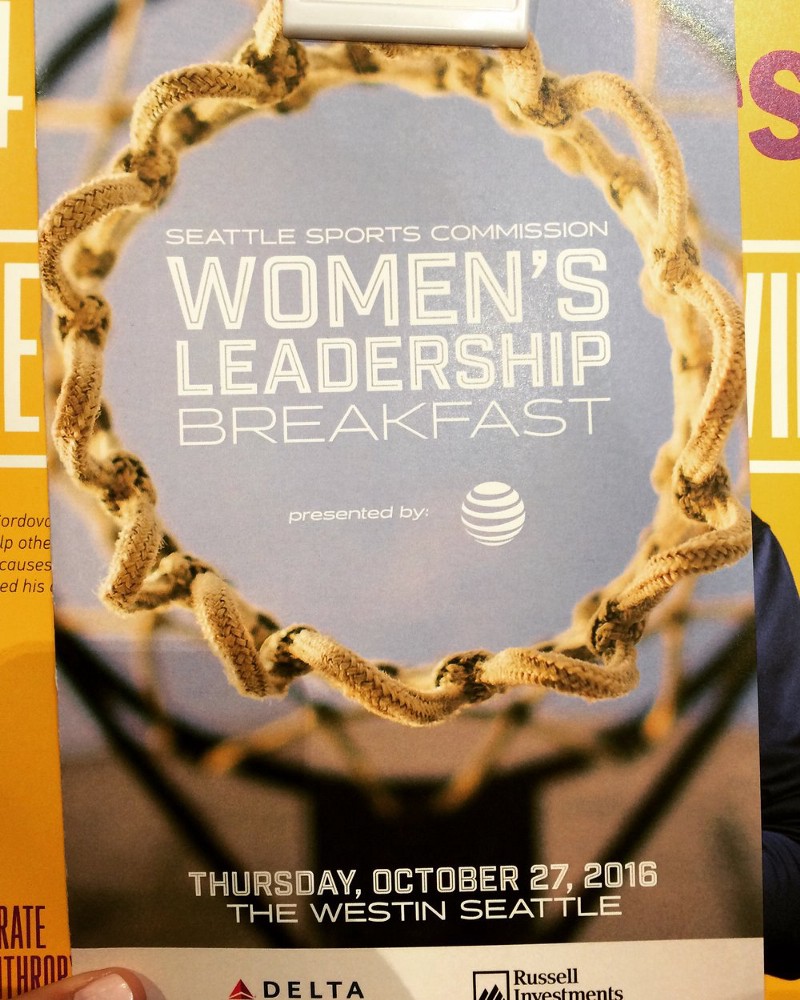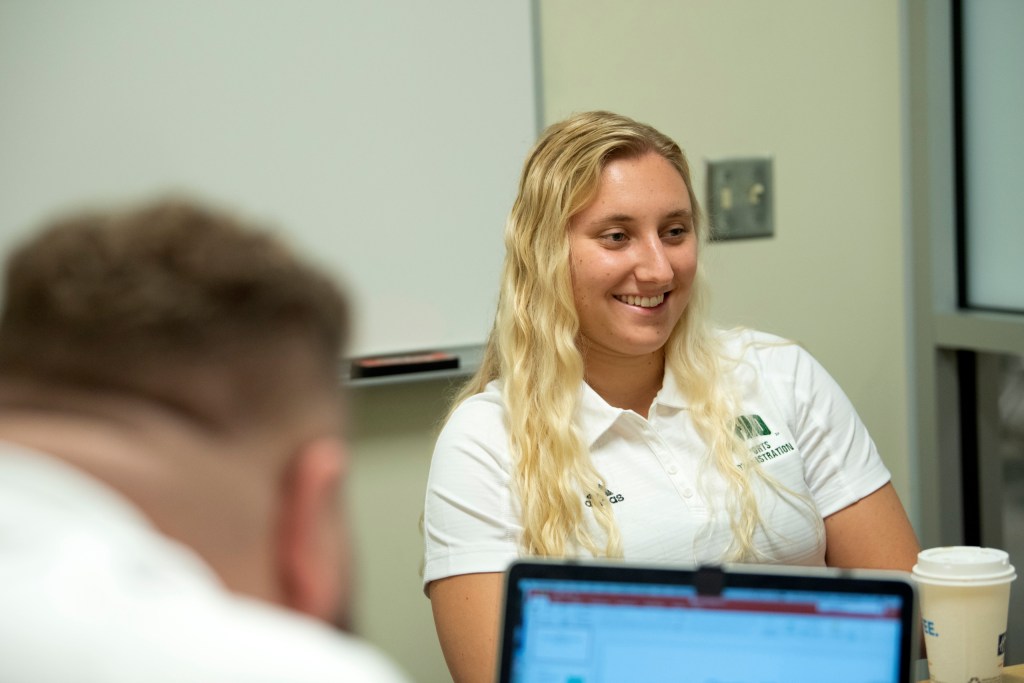By: Meaghan McCloskey, @Meaghan_Mc3

A few short weeks ago, I had the opportunity to attend the Seattle Women’s Leadership Breakfast presented by the Seattle Sports Commission and moderated by Jen Mueller, a local reporter for ROOT Sports and owner of Talk Sporty to Me. The hour-long discussion centered on how participating in sports helps develop leadership skills in the business world. Featured on the panel were:
- Colleen McAleer: President of the Washington Business Alliance and a former collegiate cheerleader and Army veteran.
- Carrianne Smith: Area Director of Sales and Marketing for Starwood Hotels & Resorts and a former figure skater.
- Frances Traisman: Vice President of Sales for the Seattle Mariners and a former cheerleader and gymnast.
- Alisha Valavanis: President & General Manager of the Seattle Storm and a former collegiate basketball player.
Throughout the hour-long conversation, these inspiring women touched on the importance of athletic participation and how it can prepare you for a successful life long after your playing days are over. While there were multiple points discussed, the three that stuck out were the importance of teamwork, leading no matter what and the importance of confidence.
“Talent doesn’t matter if you can’t work as a team”
— Alisha Valavanis
Teamwork Makes the Dream Work…
Teamwork was the biggest point of emphasis during the discussion. Like sports, you have to be able to work as a team in the workplace. Everybody has a different role, but each one is critical for success. One point Valavanis made was, “Talent doesn’t matter if you can’t work as a team.” This is important because it emphasizes what you’re working towards is bigger than yourself, and there are some things you can’t accomplish on your own.
Valavanis’s comment re-affirm the notion that the most successful teams are the ones who collaborate and bring out the best in each other. Everyone brings something different to the table, no matter if it’s at work or in sports. When you can utilize everyone’s strength harmoniously, you’ll have more fun and accomplish more.
Being coachable was another characteristic mentioned because it shows you can take feedback to better your performance. When playing a sport, you have to be able to take feedback from your coach in order to improve. The same goes for the workplace. It’s not always easy to listen to criticism, but it will help make you a stronger person and a better performer. Remember that your coach (or boss) is part of your team and they want you to be successful.
“Play your role well. When you can do everything in your role well, you’ll be ready to take on more tasks in addition to what you already do.”
— Frances Traisman
Leaders Lead…
While titles are important when it comes to distinguishing leaders, they shouldn’t keep you from being a leader in your role. In sports, you’ll often hear about underclassmen being leaders, even though they haven’t been on the team as long as the upperclassmen. With that in mind, you don’t have to be the CEO or Vice President of a company in order to be considered a leader.
Smith mentioned that sometimes you’ll need a nudge from someone else, but that’s where being coachable comes in. You’re always learning from your peers, whether you’re an intern or C-Suite level employee. If you’re still new to a company, don’t be afraid to speak up in meetings or offer your ideas to a coworker who might have more “pull” than you.
There have been multiple times in my career where I had an idea, presented it to the right person, and they listened and loved it. It didn’t matter to them that I was in a seasonal-position or wasn’t working in the same department as them. There have also been times when I presented ideas that went nowhere, but that doesn’t mean my opinion wasn’t valued. Sometimes the timing is bad or it doesn’t fit with their vision, but speaking up shows that you are proactive and care about the company, product, and consumers/fans.
Traisman’s advice to those in attendance was to, “Play your role well. When you can do everything in your role well, you’ll be ready to take on more tasks in addition to what you already do. But you have to master your tasks first.”
This advice is important because it’s easy for people can get ahead of themselves and want to take on more before they’re ready. It reminded me of the saying, “Don’t practice until you get it right. Practice until you can’t get it wrong.” I’m definitely guilty of wanting to do a little bit of everything, but am constantly reminded that’s not always the best route. Doing a few things well is better than doing lots of things poorly.
Be Confident and Passionate…
The panelists were asked how someone can “own their space”, and having confidence was mentioned across the board. You have to trust and be proud of yourself and not be afraid to go for it. This also includes negotiating for yourself. It’s not always easy to speak up and defend yourself, but you have to be able to convey your value because hard work won’t always cut it.
I used to have a hard time speaking up, but thanks to my peers, some classes in college, and involvement in extra-curriculars, I’ve been able to put aside my fears and just go for it. The worst thing someone can say is “no”, but if you have confidence in yourself, you’ll be able to use that “no” as motivation and not be complacent.
They also mentioned you should be passionate about what you do. If you’re passionate about something, chances are you’re very knowledgeable about it. The more knowledgeable a person is about something, the more likely they are to speak up because they’re confident in what they know. Passion equals knowledge equals confidence. Find your passion and use that to build your confidence.
You don’t have to be the star-athlete or on a Division I team in order to reap the benefits sport has to offer. Just by joining a team, you’re showing that you want to work for something bigger than yourself. Sports participation helps you learn time-management, teamwork, and self-motivation, all which are crucial characteristics for being a leader and are frequently mentioned in job descriptions. You might not realize the benefits at the time, but when you get to the working world, you’ll see a lot of similarities.

















